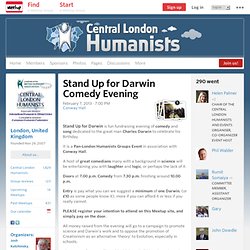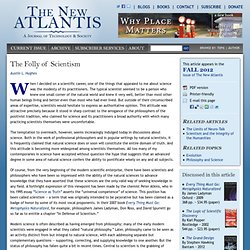

How To Find Scientific Information On The Internet Without Getting Duped. Actual scientific data is your best defence against misinformation, but locating real facts amongst selectively-quoted studies and outright lies online can be difficult.

We’ve told you before how to tell if something controversial is actually true, but what if you want to read up on a subject without stumbling into half-truths and pseudoscience? Here’s how to use the internet as a powerful research tool without being led astray. The internet is full of useful, well-documented information, and all of it is right at our fingertips. The problem is that the signal-to-noise ratio can be low.
Search engines attempt to separate the real science from unsourced opinions and so-called “experts” only interested in selling books or pushing a particular viewpoint, but those automated services don’t always get it right. Recognise Your Two Biggest Research Enemies Before you hit Google and start researching, you have two big obstacles to watch out for: Your own confirmation bias. Medical Science. Stand Up for Darwin Comedy Evening - Central London Humanists (London, England. Stand Up for Darwin is fun fundraising evening of comedy and song dedicated to the great man Charles Darwin to celebrate his Birthday.

It is a Pan-London Humanists Groups Event in association with Conway Hall. A host of great comedians many with a background in science will be entertaining you with laughter and logic, or perhaps the lack of it. Doors at 7.00 p.m. Comedy from 7.30 p.m. finishing around 10.00 p.m. Entry is pay what you can we suggest a minimum of one Darwin, (or £10 as some people know it), more if you can afford it or less if you really cannot. PLEASE register your intention to attend on this Meetup site, and simply pay on the door. All money raised from the evening will go to a campaign to promote science and Darwin's work and to oppose the promotion of Creationism as an alternative 'theory' to Evolution, especially in schools.
Itsfullofstars: skyscraper: the-iridescence: ... Introduction - 10,000 Year Clock. The full scale 10,000 Year Clock is now under construction.

While there is no completion date scheduled, we do plan to open it to the public once it is ready. The essay below by Long Now board member Kevin Kelly discusses what we hope the Clock will be once complete. This is one of several projects by Long Now to foster long-term thinking in the context of the next 10,000 years. by Kevin Kelly There is a Clock ringing deep inside a mountain. Is around to hear it.
The Clock is real. The Clock is now being machined and assembled in California and Seattle. The Clock’s inventor introduced the idea of the Clock (in 01995) with this context: I cannot imagine the future, but I care about it. That’s Danny Hillis, a polymath inventor, computer engineer, and designer, inventor and prime genius of the Clock. Eno also composed the never-repeating melody generator that rings the Clock’s chimes inside the mountain. To see the Clock you need to start at dawn, like any pilgrimage. Tiktaalik roseae: Meet Tiktaalik.
(A few) transitional fossils. Photos du journal. The Folly of Scientism. Austin L.

Hughes When I decided on a scientific career, one of the things that appealed to me about science was the modesty of its practitioners. The typical scientist seemed to be a person who knew one small corner of the natural world and knew it very well, better than most other human beings living and better even than most who had ever lived. But outside of their circumscribed areas of expertise, scientists would hesitate to express an authoritative opinion. This attitude was attractive precisely because it stood in sharp contrast to the arrogance of the philosophers of the positivist tradition, who claimed for science and its practitioners a broad authority with which many practicing scientists themselves were uncomfortable. The temptation to overreach, however, seems increasingly indulged today in discussions about science. Modern science is often described as having emerged from philosophy; many of the early modern scientists were engaged in what they called “natural philosophy.”